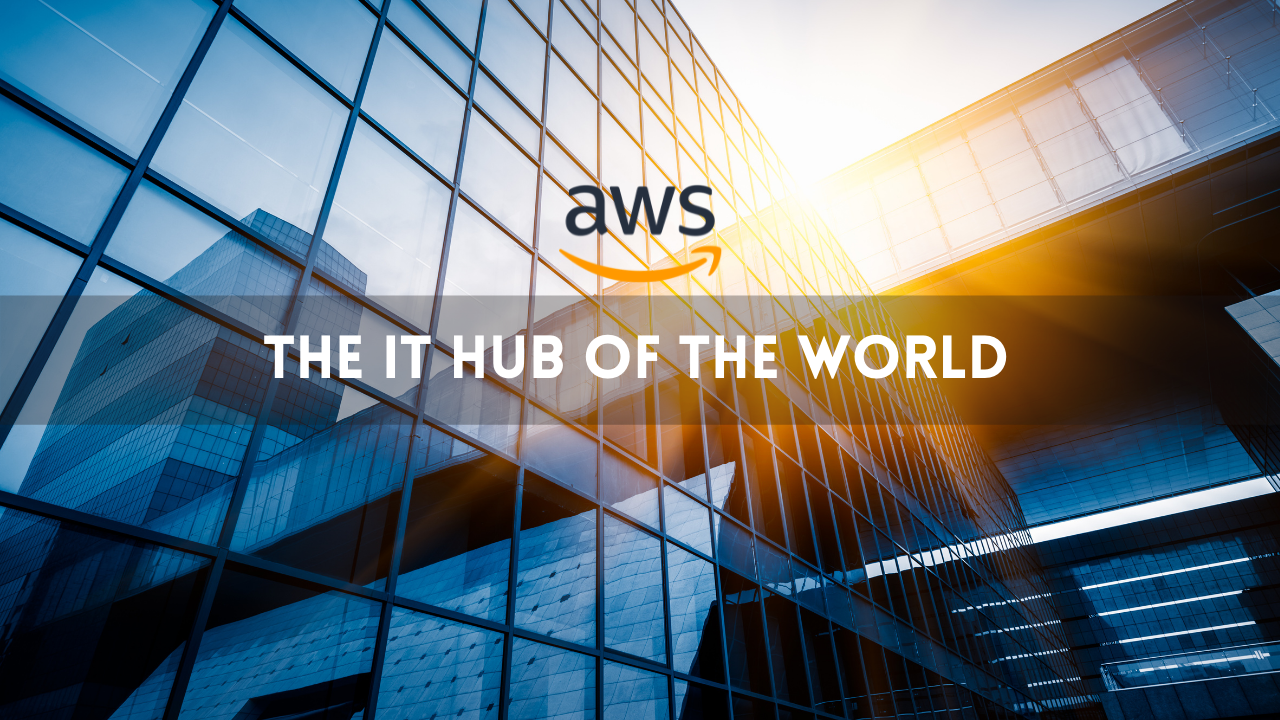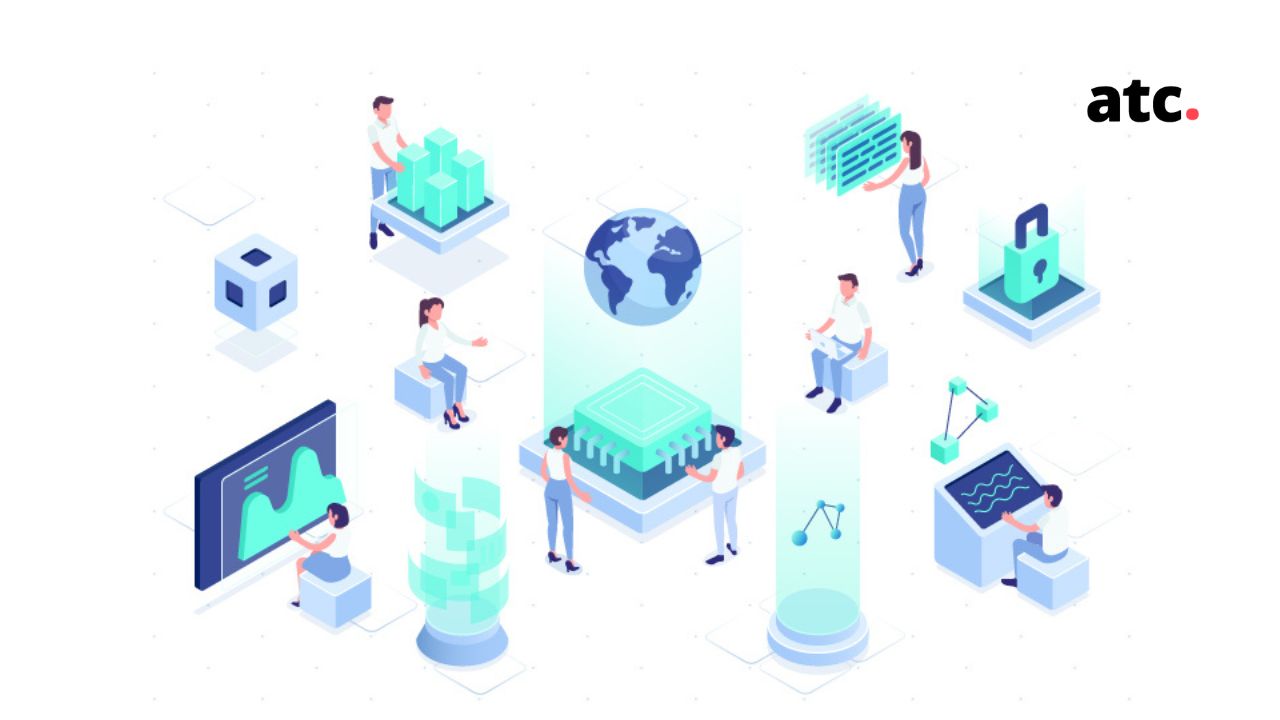Subscribe to the blog
IT organizations and professionals all over the world rely on AWS. Period.
For many, Amazon Web Services is the heart that keeps their business running, but there are still some professionals who have limited knowledge of its key features, functionality, and benefits.
Here, we explore how AWS has grown to become a one-stop IT shop for organizations across the world. We investigate why these organizations prefer running their entire IT infrastructure on AWS over any other technology.
To conclude the discussion, we’ll provide advice on how you can join the revolution by becoming AWS certified, taking an active role in the dynamic world of AWS cloud services.
Let’s first look at the basics.
Myth surrounding the beginnings of AWS
There is a rumor making rounds in cloud infrastructure circles about how Amazon came to create the multi-billion dollar Infrastructure as a Service (IaaS) in the early 2000s. The story goes that Amazon had excess spare computing capacity from its commercial efforts which became the basis for AWS cloud. Benjamin Black (AWS’ co-founder) has heard the rumor many times, but says it’s not true.
According to Black, each part of the service was purposely designed for AWS.
The True Story of How AWS came in to being
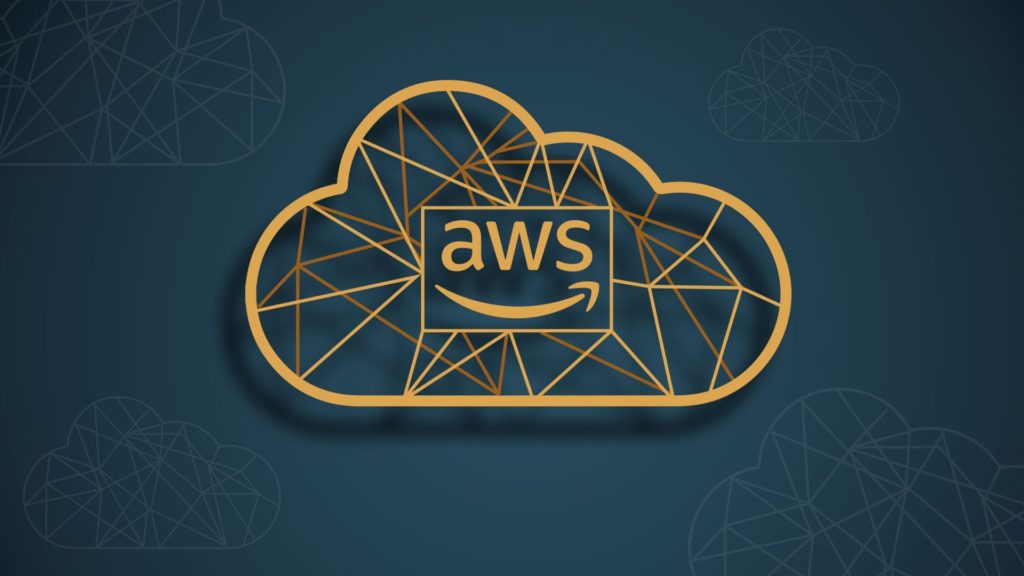
In 2003, Black was leading a website engineering team at Amazon. At that time, their IT department could not keep up with the fast-paced growth of the company. Chris Pinkham was also part of the IT team.
Pinkham would push Black to consider how the infrastructure at Amazon could be scaled up more efficiently. Both explored how they could abstract and decouple applications from the Amazon infrastructure for ease of management.
Black and Pinkham realized that there might be value in doing that, both for Amazon and external users. Perhaps they could sell the infrastructure as a service, they thought. Black and Pinkham decided to write a paper on the idea which was forwarded to Jeff Bezos, who ended up liking it…a lot!
Pinkham was the project leader of the team that built Elastic Compute Cloud (EC2), which is a virtual machine as a service. It was the first-ever product from AWS, released in 2006—the same year that the term cloud computing was first used by Eric Schmidt, the then Google CEO.
Bezos envisioned the platform offering anyone, including college kids, tools that they could use to start a new company. This is still the idea people have of AWS. But it’s also taking over the world with a host of other services.
Why is AWS Successful?
AWS has steadily grown to become a critical component of the Amazon business portfolio. In the last quarter of 2020, it has brought in a revenue of over $13 billion, accounting for over 63 percent of Amazon’s operating profits for the year.
The steady growth of 30 percent over the last few quarters makes AWS the frontrunner to other cloud computing platforms such as Microsoft Azure. So, what makes Amazon Web Services so lucrative and successful for Amazon?
The Cost Savings
Bezos likens AWS to early 1900s utility companies. Back then, factories requiring electricity built their own power plants. Once the same factories could purchase electricity from public utilities, the need for expensive private electric plants was reduced.
It is attempting to move organizations away from physical computing technology and onto the cloud.
A few years ago, organizations that needed large storage had to build and maintain their own storage spaces. Storing on the cloud meant signing expensive contracts for storage space that a business could grow into. Purchasing or setting up too little storage was disastrous once the enterprise took off and expensive if operations decreased. The same applies to computing power.
Organizations and businesses that experienced surge traffic had to purchase power loads to sustain their operations during peak times, while during off-peak times computing power was unused but it still costs money.
It allows companies to purchase only what they are using. There is no requirement for an upfront fee to create the storage system or to estimate usage. An Amazon Web Services customer uses what they require and the costs are scaled automatically.
Scalability and Adaptability
Since the cost of AWS services can be changed according to the organization’s usage, small business and start-ups realize an obvious benefit. After all, it provides an excellent platform for building a business from the bottom up because it offers access to all the tools necessary to get started in the cloud. Existing businesses can use AWS’ low-cost migration services to seamlessly shift their current infrastructure to the cloud.
Amazon Web Services provides the resources required by growing businesses during expansion. The business model also allows for flexible usage so that customers never have to worry about whether it’s time to re-evaluate their computing usage. Apart from the budgetary benefits, organizations can adopt a realistic set-and-forget model for their computing requirements.
Better Security and Reliability
AWS is a more secure environment compared to organizations hosting their own storage or website.
Dozens of AWS data centers across the world are continuously monitored and maintained. Datacenter diversification ensures that a disaster in one region does not cause permanent data disruption around the world.
Amazon Web Services tries to keep the data centers hidden. Many are in out-of-the-way sites, and access is only allowed on an essential basis. This ensures that data centers and the data they hold are safe from intrusions.
Moreover, Amazon has experience in cloud services, so potential attacks and outages can be identified quickly and easily diverted at any time of day. The same cannot be said for a small firm where computing is handled by a single IT professional in a large office.
AWS services are shaking up the computing world as Amazon.com is shaping the American retail space. Through cheap pricing for its cloud services, it offers scalable and affordable services to new entrants and Fortune 500 organizations.
The Top 10 Most Used Services from AWS
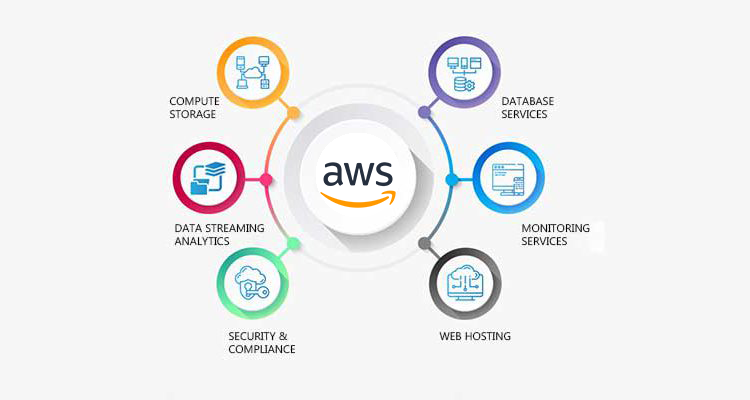
Today, AWS is home to over 200 services. They classify these services into domain categories such as the following:
● Migration
● Storage
● Identity compliance
● Network
● Compute
● Content delivery
● Management tools
● Database
● Security
With such a huge number of services available, it's difficult to determine the most widely used ones. For organizations looking to migrate their database or applications and IT professionals interested in becoming part of the AWS revolution, here are the top 10 AWS services.
Amazon EC2
Businesses no longer have to worry about looking for money to put into expensive physical services. Instead, they can use Amazon EC2 to create virtual machines and manage critical server functions such as storage and security. This service allows them to spend more time working on their projects instead of server maintenance, making Amazon EC2 the fastest growing and most popular service.
Amazon RDS
Amazon Relational Database Service (RDS) helps make organizational infrastructure user-friendly. The service eases the creation of dedicated database instances. Plus, you can use the instances to support several database engines, such as PostgreSQL, SQL, and SQL Server.
Amazon Simple Storage Service
Amazon Simple Storage Service (S3) provides businesses with storage to handle an increasing amount of big data. The service provides a highly redundant and secure file storage solution in one of three data centers in each region. Included integrations with Amazon S3 offer multiple ways to prevent breaches, for example, through PCI-DSS.
Amazon VPC
This service is suitable for businesses ready to isolate their entire IT infrastructure from exposure. It works by creating a private virtual network, which is only accessible to authorized individuals and systems. Some additional security features include network access control lists and security groups. For extra security, organizations can have dedicated instances created which isolate them at the hardware level from their other AWS accounts.
AWS Beanstalk
Switching from development to maintenance is difficult for developers. AWS Beanstalk is an auto-scaling service for automatic software updates that automates setting up, configuring, and provisioning other services such as S3, EC2, and RDS. Automating setup helps eliminate human error.
AWS Autoscaling
Businesses seeking growth need to make sure their IT infrastructure can provide the required support. Through AWS Autoscaling, organizations can easily manage server fleets and incoming traffic. Businesses can create several instances when required.
AWS Autoscaling ensures predictive scaling and provisioning that ensures the right amount of resources available for EC2 instances ahead of seasonal spikes and other future traffic. Plus, machine learning algorithms can detect and adjust to daily and even weekly patterns.
Amazon CloudFront
This service is critical in improving site speed and access to data on the cloud. The CloudFront service works like a Global Content Delivery Service (CDN) by efficiently delivering content to the end-user. Some of the benefits include improved web page loading speed and the ability to pull site static files from data centers all over the world.
Amazon SNS
This is an event-driven computing hub that alerts a subscriber service to perform certain tasks automatically based on specified triggers.
For instance, sending notifications to any user on any platform. Integration with Python, PHP, Node, etc., means that organizations never miss a critical alert.
AWS Lambda
Sometimes, the current server infrastructure is incapable of supporting the demands of an ongoing development speed. Amazon Web Services Lambda can come in and support the development load. While you are handling coding, AWS Lambda provides the right amount of resources and support so that your system does not stretch past its capacity.
AWS IAM
AWS Identity and Access Management (IAM) ensures effective fortification of sensitive data and AWS resources. The service can also be used with the organization’s MFA and 2FA. The added security layer can ensure business compliance with industry standards.
For businesses, these top Amazon Web Services services are treasures in the cloud. They are cost-effective and secure and also support continuous operational efficiency.
AWS in the Future—Why Everyone Will Work With the Service
Like any other technology, cloud computing is always growing and evolving, and AWS is no exception to that. Its continual innovation and expansion are geared toward providing customers with better solutions that add value to the user experience.
AWS does this by establishing critical partnerships with players in different niches to ensure that the platform offers more value to organizations. The AWS Partner Network (APN) is leading the way to partnerships that will make sure that everyone around the world is using AWS.
These partnerships are driving the trend towards the following:
● IoT and smart cities powered by the cloud such as the Transport for New South Wales;
● IoT expanded use in healthcare through partnerships with organizations such as Philips
Other notable partnerships that will play a defining role in the AWS and cloud computing future are mentioned below:
● AWS and Nokia: The partnership with Nokia ensures the rollout of 5G-specific digital services. In November 2019, Nokia announced that their Common Software Foundation (CS) platform supports AWS, providing Communication Service Providers (CSPs) with an extra deployment option and faster time-to-delivery when rolling out new digital services or 5G.
● AWS and OpenText: The strategic partnership between OpenText and AWS was announced in May 2020, helping drive the OpenText Anywhere strategy and giving customers more choices in the cloud. While this partnership is relatively new, cloud-native OpenText applications such as CatalystSecure and Hightail are already on AWS. The partnership can be expected to shape the future for on-the-cloud IM solutions and products, creating an information advantage for users.
● AWS and Veritas: Veritas is part of the APN network offering advanced technology and storage competency. Technical integrations with AWS enable Veritas to give businesses more control over their data. From archiving the S3 Glacier, backing up S3, and ensuring critical apps are highly available and recoverable to migrating workloads to the EC2 service, Veritas offers AWS users high-performance cloud solutions at scale.
● AWS and Unisys: The partnership helps cloud clients achieve their business goals and securely adopt cloud computing by protecting network connections to the AWS cloud. Unisys provides CSIC- and NSA-certified solutions that secure its client networks.
These are a few recent partnerships that AWS has established through the APN. With this growth, it’s obvious that the future of professionals skilled in AWS is bright for cloud computing professionals, especially those who have undergone a thorough AWS training & certification course.
The Benefits of Getting AWS Certified
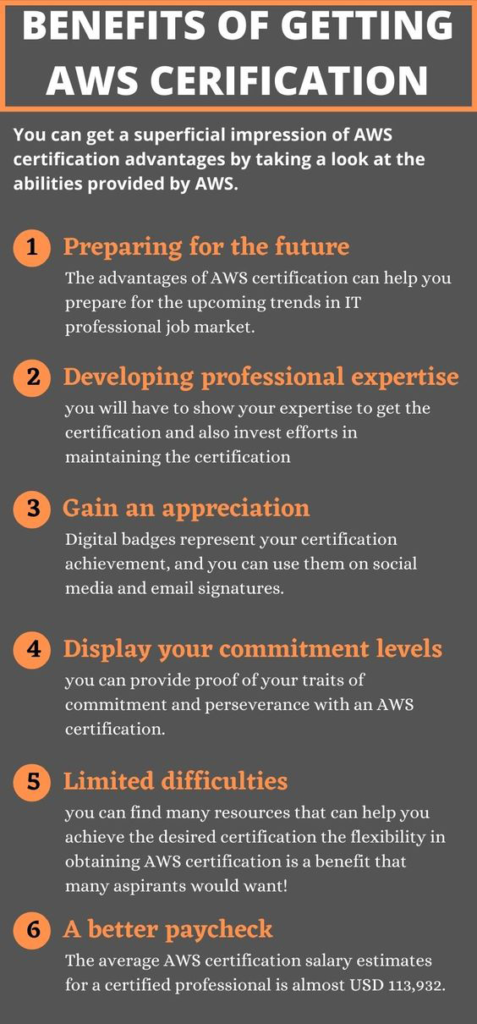
Competition in the information technology field is stiff. In order to be a real force at your job, you need to have a set of unique skills that put you ahead of your peers and grab companies’ attention, moving their operations to the cloud. AWS certifications will help you get there and they take you an extra mile forward to your dream job.
Here are a few reasons to get AWS certification:
The Demand for Cloud Skills is Increasing
Organizations of every size are migrating to the cloud and accessing enterprise-rated technology, reducing their hardware costs and flexibly scaling their services up or down. This means that organizations are looking for cloud professionals who can help facilitate a seamless move to the cloud. AWS certification is one of the most sought-after ways in which you can show your command over the required cloud skills.
A Digital Badge
There is a digital badge for every AWS certification you achieve.
Many professionals use the digital bridge on their websites, LinkedIn, and social media profiles to showcase their achievements. The badge makes it easy for employers to judge your cloud-computing credibility and competency for various cloud-related job positions. Many professionals are already using these badges to discover better career opportunities and attend AWS Summit events.
An AWS Certified Global Community
You gain access to the LinkedIn AWS certified community once you have certification. This presents an excellent opportunity to expand your network and form meaningful connections with like-minded professionals. Discussions within the community revolve around innovative ideas and offer suggestions for problems faced by community members while receiving critical responses from experts.
Better Prospects of a Higher Salary
The obvious reasons for getting these certifications are to upskill yourself through AWS online training and enhance your earning potential.
AWS certification is a proven means of improving your salary package.
A Clearance Jobs report shows AWS Certified Solutions Architect (Associate) is one of the highest-paying certifications in the IT world with an average annual salary of $149,446. Other high-paying AWS certifications include the following:
● AWS Certified DevOps Administrator (Associate)
● AWS Certified Developer (Associate)
● AWS Certified Solutions Architect (Associate)
The Take-Away
The growth of AWS, its adoption by organizations around the world, the prospects, and the benefits of a career in AWS are all compelling reasons to start thinking about earning an AWS certification. Make sure you pick a certification that aligns with your current role and future career expectations.
Every year, more professionals take up AWS certification training online to gain critical experience using the platform’s services. There are various AWS courses for each certification which are essential to passing your certification exam on the first attempt.
Take the first step today and watch as your career propels forward.
Find Out More…and How We Can Help
As a busy, forward-thinking professional, you are committed to lifelong learning and building your professional skill sets. To assist our clients in that effort, we have a number of online courses available in the subjects of SAFe, Amazon Web Services, and many more technical fields. Whether you are a Scrummaster, Program or Product Manager, Agilist, Enterprise, System or Solution Architect, you will find a course that meets your needs.
We offer live, instructor-led training programs for AWS. Take your career to the next level and enroll today!
